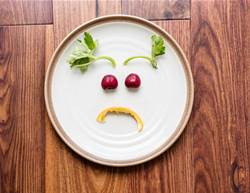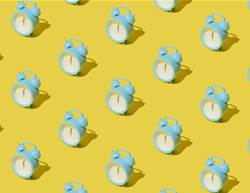A new survey has revealed major changes to the New Year’s resolutions being made around the globe.
Fintech firm Ferratum’s Christmas Barometer found 22% of the respondents put health and COVID-19 spreading prevention as their top choice, followed by spending time with loved ones at 16%, appreciating the little things more at 11% and exercising more 10%.
At the end of the chart, were buying a house or buying a car, things that became less important this year.
Setting New Year’s resolutions is a very different scenario during a pandemic.
Katherine Arbuthnott, Professor of Psychology, University of Regina, noted at The Conversation that people are realising that the prospect of life returning to exactly as it was before COVID-19 is “highly unlikely”.
“The future has become less predictable, which also means that setting long-term goals is much more difficult,” she said. “It’s hard to imagine an ideal self without knowing what that self will be experiencing.”
Arbuthnott's advice as a psychologist is to focus on short-term goals. Her own resolution, for instance, is to spend at least five minutes each day appreciating the birds in her yard, which she said “never fails to lift my spirits”.
“It is probably challenging enough to figure out what’s needed to make it through the months until everyone is vaccinated and can start to make their way back into a more social world,” she said.
For those who can’t resist thinking about long-term goals, Arbuthnott suggests reviewing what you’ve learned during the pandemic. Long-term resolutions could be based on consideration of three things:
>> What do I want to keep from changes I made to cope with the pandemic?
>> What do I want to reclaim from the pre-pandemic time?
>> How would I “build back better” if I were in charge of the world or my neighbourhood?
“Each of these things will require some long-term goal focus, and can help you imagine a new ideal self for the post-pandemic times,” she said.
Psychology Today author Kate Hays notes that it’s an opportunity for a “gentle” reset and giving yourself time for recovery.
“After nearly a year, what have you learned about yourself, your goals, what motivates you, your life circumstances, opportunities, and limits? The 'return to normal' is not going to happen very soon,” she explained.
“Don’t expect to be able to pick up where you left off. Your life has changed. This involves being gentle with yourself, what you have been through, what you see as your prospects. If that’s hard to do, you might think about ‘what if I had a friend who’” had the year that you have had: what would you advise them?”
“What aspects of your health and fitness have changed? Are there some positives that you can draw from?”
Setting yourself up for success
VicHealth CEO Dr Sandro Demaio spoke to Mary Gearin on ABC Radio Melbourne about how we can approach the new year and set ourselves up for successful resolutions.
He suggests one of the best places to start could be with the things you may have started doing more of through the pandemic.
“Maybe you had a little bit more time to cook things from scratch, had time away from phones and social media, more time in nature or daily exercise,” he said. “Simple things like that which you may have really enjoyed across 2020, maybe you can hold onto those.
“It’s really just about making sure that it’s realistic, it’s achievable and you set yourself up for success.”
Dr Demaio said it’s important not to rush into ticking off the goals you set yourself in 2021.
“Give yourself as long as you need [to work on your goals]. It will be different from person to person,” he said.
“The chronic stress and physiological changes that have occurred in our brains and bodies over 2020, those will be starting to lift. Some of those sources of pleasure are coming back into our lives. And some of the very real and constant sources of stress we felt across this year may be starting to leave.
“It has been a tough year, and it’s been particularly tough for certain people in the community so if it takes you a couple of weeks, that’s OK as long as you’re looking after yourself and if you do need help you reach out and seek that.”






.jpg&h=193&w=250&c=1&s=1)



